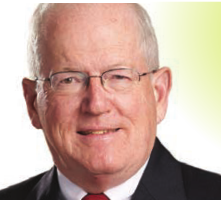Closing of NH Institute of Art has left a vacuum in the city’s arts community
Manchester has a newly created hole in its arts community. The facilities of the NH Institute of Art are dark and unoccupied. New England College, which acquired the institute in 2019 and promised to continue its programs and operate its facilities, announced earlier this year that it was withdrawing from Manchester and taking the programs to its campus in Henniker. It reportedly has put the Manchester assets on the market for sale.
In making this decision — and New England College may well have financial reasons for doing so — several longstanding arts programs in Manchester have been disrupted. The Palace Theatre has long had a partnership with the institute in which its students studied at the theater and did art projects for it. Students participated in its performances, and there even is an incomplete mural on one of the Palace’s buildings that students were painting. The Currier Museum of Art had a partnership with the institute, which provided arts education to children and adults in a cooperative arrangement.
Knowing of the promises of New England College to continue these programs in Manchester when it acquired the institute, the Currier sold its arts education building and changed other programs, relying on the fact that the facilities and programs of the institute would fill those needs. Now the programs are gone.
The facilities and students of the Institute of Art were a hub of activity and culture in the center of the city.
Construction of a creative housing addition to New Hampshire’s first high school building and the renovation of that building was a cause of celebration when it was completed a number of years ago. Installing a gallery and photography studio in a former paint store on Amherst Street was a creative re-use of the property.
The main building was named after the first benefactor named French. Mary Fuller Russell — sister of Henry Fuller, who made a substantial bequest to the Currier — gave a multimillion-dollar endowment to the institute. It is doubtful that the French or Fuller families would be pleased to have those gifts used for support of anything other than the arts in Manchester, although that may be the result of the merger and then closure, unless some change is made. Other endowment gifts to the institute are similarly affected.
Behind all this present crisis is the history of missed opportunities. As the institute grew, projections of enrollment often were overly optimistic, so budget targets were missed. Perhaps the largest failure was missing the chance to be acquired, when Southern New Hampshire University offered to make the institute part of that substantial institution.
Rather than recognize the opportunity, the then-board of directors turned down the offer after faculty objected by a divided vote. The board did not recognize the fact that faculty often object to any substantial changes in colleges and universities, even those that can preserve their jobs, which are now lost.
A group of citizens and representatives of affected Manchester institutions has been meeting to see what can be done to fill the void left by the departure of New England College and to see what options there may be as to the facilities and the endowment funds. Hopefully their efforts, and a close examination of the process and legalities involved, may result in some developments that can restore programs and the important presence of the arts in downtown, including preserving the facilities and endowment of the Institute of Art, which were the result of the century of its presence in Manchester. It is critical to the cultural life of the state’s largest city.
Speaking of Manchester, observers of politics in the Queen City are scratching their heads at the filings by three Democratic aldermen — June Trisciani, Will Stewart and Kevin Cavanaugh — to run for mayor. This guarantees that there will be three new aldermen, replacing these three experienced and responsible people, and that at least two of them will be out of office after the fall election. It also means that the vote will be split in this nonpartisan election process, where people really know who the Republicans and Democrats are, giving the sole Republican candidate, a recent city resident, a clear shot at surviving the primary.
There are no party leaders who control such a situation, but the late entry of Alderman Cavanaugh was a strange twist in the saga.
Brad Cook is a Manchester attorney. The views expressed in this column are his own. He can be reached at bradfordcook01@gmail.com.